Digestive chemicals - water, gastric acid, bile & bicarbonate
By: HWC
Date Uploaded: 02/03/2020
Tags: homeworkclinic.com Homework Clinic HWC ingested fluids hydrolytic digestive reactions gastrointestinal tract gastric acid stomach mucosa pepsin polypeptide gastric enzyme bile cholesterol Emulsification lipase enzymes bicarbonate chyme
• Water is the most abundant molecule in ingested fluids. • Water plays a primary role in hydrolytic digestive reactions. • Helps liquefy and transport digestive foodstuffs down the tract. • Transports secretions from accessory digestive organs to gastrointestinal tract. • Aids in the absorption of nutrients. • The stomach mucosa produces hydrochloric acid, a strong acid. • Gastric acid breaks hydrogen bonds and alters the globular shape of proteins to promote the : • Production of pepsin, the gastric enzyme. • Destruction of microbial proteins. ▪ Enzymes more easily break down the resulting polypeptide into smaller peptides. • Bile is produced by the liver. • Bile consists mostly of bile salts (produced from cholesterol) and water. • Primary function of bile is emulsification of fatty globules. • Emulsification facilitates efficient breakdown of fat molecules by lipase enzymes. • Bicarbonate is secreted into the intestine to: • Buffer the acidic chyme from the stomach and protect intestinal mucosa. • Promote an alkaline pH level in the small intestine to create a proper environment for intestinal enzymes to function normally.
Add To
You must login to add videos to your playlists.
Advertisement



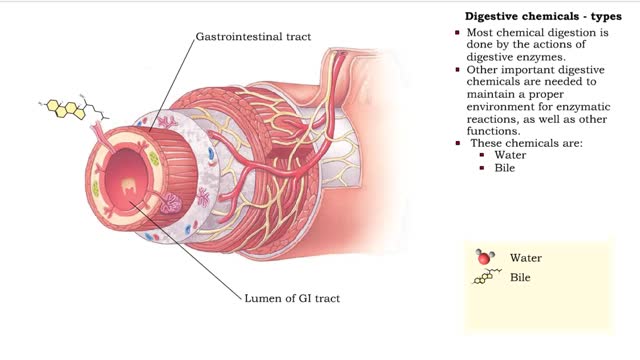
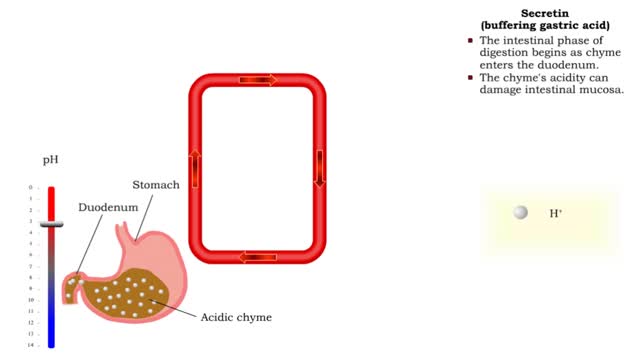
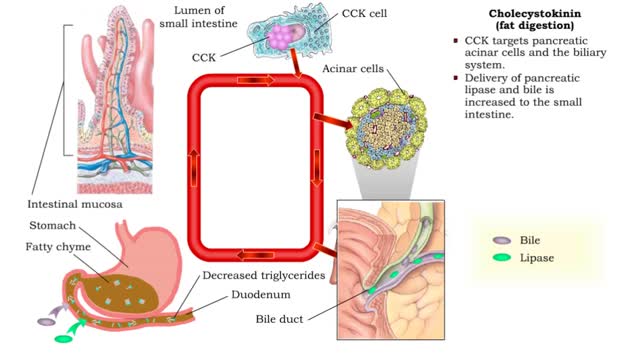
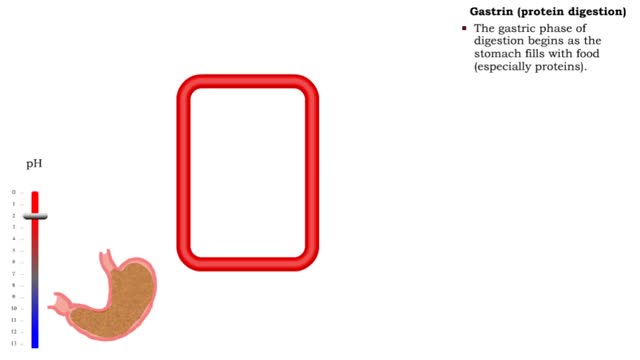
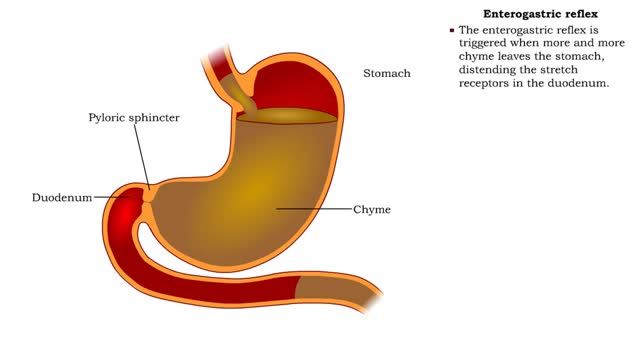
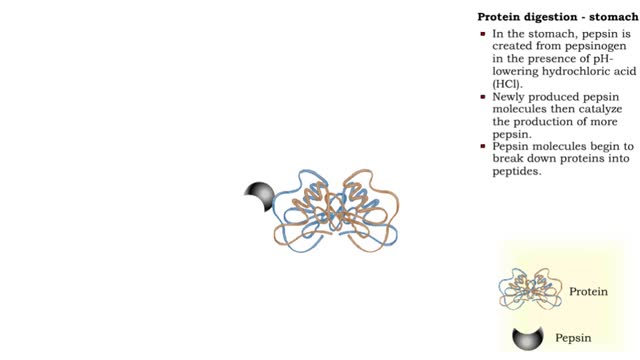
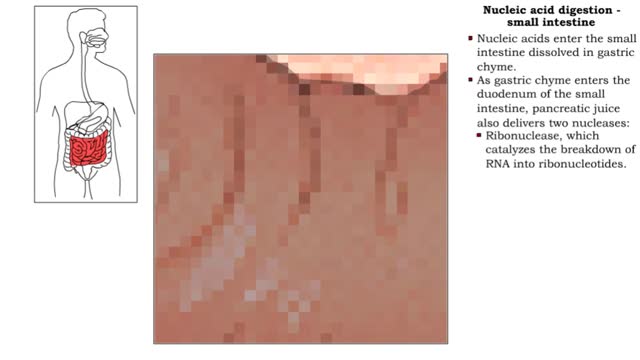
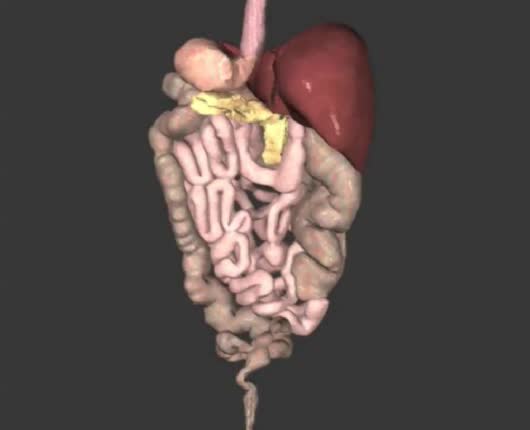
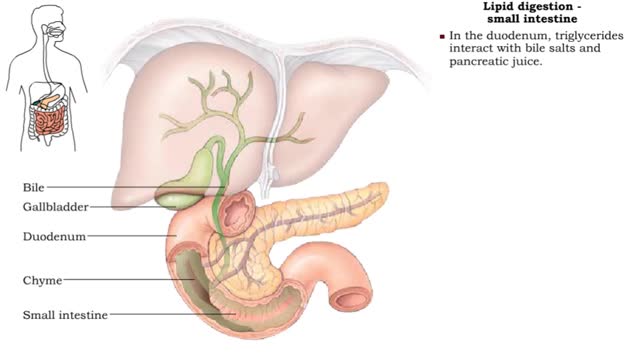
Comments
0 Comments total
Sign In to post comments.
No comments have been posted for this video yet.